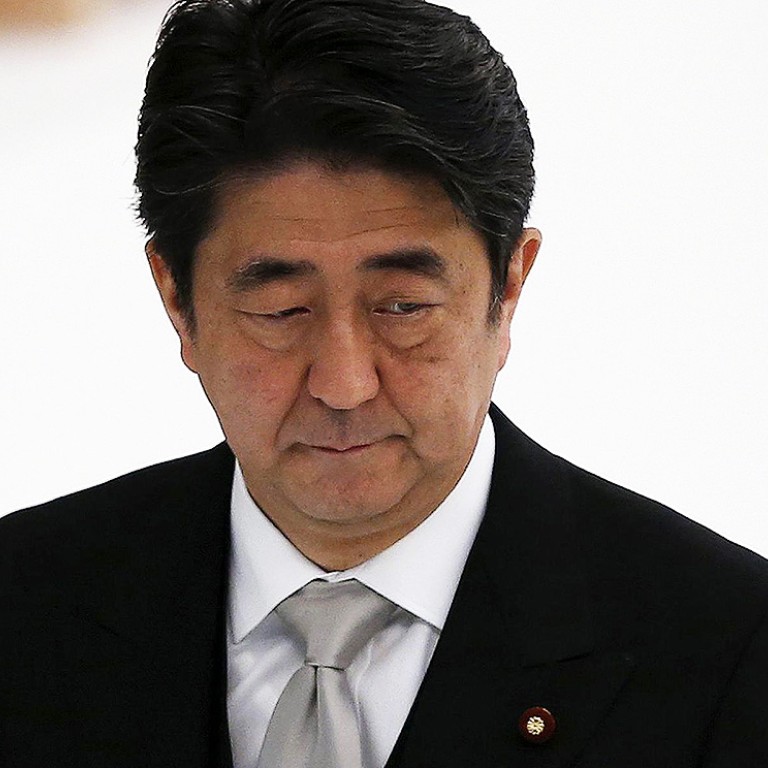
Update | Shinzo Abe sends condolences for martyrs, including war criminals
Honouring spirits of wartime leaders, some war criminals, may hit chances of meeting Xi Jinping
Japanese Prime Minister Shinzo Abe sent a condolence message to a ceremony honouring "martyrs", including some convicted as war criminals after the second world war, his top spokesman said yesterday, news that could snarl efforts to thaw chilly ties with China.

The term Showa refers to the late emperor Hirohito, in whose name Japanese soldiers fought during the war.
"I offer my sincere condolences to the spirits of those Showa martyrs who gave their lives for the sake of today's peace and prosperity, becoming the foundation of the fatherland," the official quoted Abe as saying in the message. "I pray for eternal peace and pledge to carve out a path to a future of human coexistence," he added.
The same wartime leaders are enshrined along with war dead at the more widely known Yasukuni Shrine in Tokyo. Visits there by Japanese leaders typically outrage China, where memories of Japan's past militarism run deep.
Abe sent the message as the head of the ruling Liberal Democratic Party, Chief Cabinet Secretary Yoshihide Suga told a news conference.
"As such, the government thinks of him in this respect as a private citizen," Suga added.
News of the message comes as Abe reaches out to Beijing in the hope of securing a summit with Chinese leader Xi Jinping at a gathering of Asia-Pacific leaders in November.
China's Foreign Ministry did not immediately respond yesterday to a request for a comment on the message.
Abe provoked angry criticism from China and South Korea when he sent a ritual offering to the Yasukuni Shrine this month, but he stayed away from the shrine, in an apparent effort to dampen diplomatic fallout.
The website of the little-known Buddhist monument in Wakayama in western Japan, where Abe sent his message, refers to those convicted as war criminals as "Showa Martyrs" and says the Allied trials were "victors' revenge".
Suga yesterday repeated the stance of Japan's government, which accepted the verdicts of the tribunal convicting the wartime leaders under the 1952 treaty that formally ended the war.
"It is a fact that [the accused] were judged guilty of crimes against peace by the International Military Tribunal for the Far East," Suga said. "Under the San Francisco Peace Treaty, our country accepts those judgments."
Some Japanese regard the trial as providing valid, if imperfect, verdicts, but ultra-conservatives reject them entirely as victors' justice.
Abe was among those publicly critical of the war crimes tribunal before he took office for the first time in 2006.

